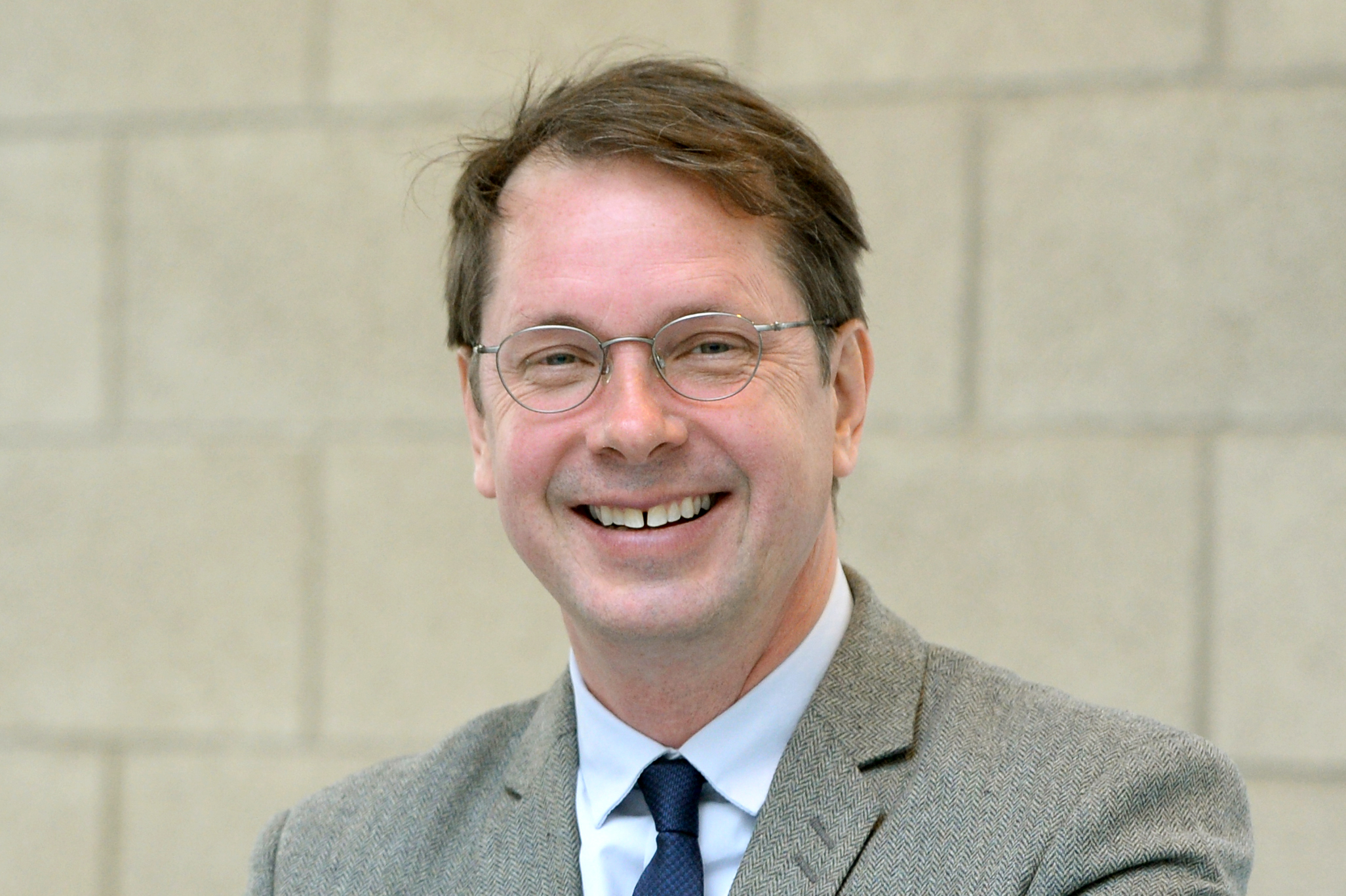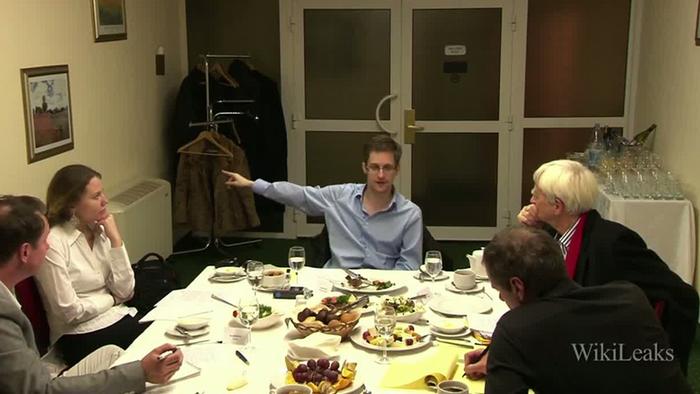John Goetz: “Secret services don’t work well”
 It was a few blurred spots on Google Maps that sparked the curiosity of investigative journalist John Goetz and his colleague Christian Fuchs. They wondered what was being hidden in Germany from the public eye. Several years of in-depth research later, they had their answer: they discovered US agencies were coordinating part of the war on terror from German soil, including the drone war against Africa.
It was a few blurred spots on Google Maps that sparked the curiosity of investigative journalist John Goetz and his colleague Christian Fuchs. They wondered what was being hidden in Germany from the public eye. Several years of in-depth research later, they had their answer: they discovered US agencies were coordinating part of the war on terror from German soil, including the drone war against Africa.
Goetz, who currently works for the German public broadcaster NDR and the Süddeutsche Zeitung newspaper, has continually come up against secret services in his investigations. He helped expose the locations of CIA secret prisons in Europe as well as the secret service bumbling that led to the US using false intelligence from the Iraqi defector known as “Curveball” (who still lives in Germany) to justify the Iraqi war. “The essence of journalism is to show if a country is living a national lie” is one of Goetz’s mottos.
In his most recent coup, Goetz met with one of the world’s most wanted men, NSA whistleblower Edward Snowden. And despite, or perhaps because of his investigations into the activities of the US secret services, Goetz has a relaxed attitude to potentially being under surveillance.
“Secret services don’t work well,” he says in an interview with onMedia.
Revelations about the extent of the NSA’s spy activities have made many journalists unsure about how well they can protect their information. Are their concerns exaggerated or justified?
I think it is important to protect sources. That’s the main responsibility we have as journalists – to protect people who take risks to talk to us. For that reason, there are a lot of things you shouldn’t do with an iPhone or a smartphone. Because if you are interested in protecting people, they are vulnerable devices.
I see you have an iPhone. What do you do to protect your communications?
I encrypt my e-mails with PGP and when I have important things to talk about, I do it on Jabber. But you have to remember that I don’t research this stuff to be stored in an archive. All of this information is going to end up in a newspaper. It is a very public profession. But we do special things to make sure that the people who give us information are safe.
When I googled you, I saw you had a Twitter account and other social networking accounts. Do you have any security concerns about using these?
I use Twitter to read the news – I’ve never tweeted anything. But I use social networking all the time to find people. For example, if you want to find drone pilots in Germany you can search for someone who works at the US Africa Command Africom and lives in Germany. You can actually find a lot of people with NSA profiles who live and work in Germany. The US security services has a big turnover so these people are always looking for new jobs. They have their profiles online and it’s easy to use them for research.
Together with the German parliamentarian Christian Ströbele, you met with NSA whistleblower Edward Snowden in October 2013. The meeting was kept secret until after the event but do you think the secret service agencies knew it was going to take place?
That’s just speculation. We have no idea if we were spied on or not.

John Goetz (left) met with Snowden in Moscow
Aren’t you worried about being spied on?
I’m not worried about being watched myself. I’m worried about people who take risks to talk to me or give me information that could end up causing them difficulties because I wasn’t careful. The key thing is we didn’t discuss the Snowden meeting on our phones, we didn’t talk publicly about it. We were careful because it is the matter of someone’s safety and that’s important for us. But journalists and others should remember that institutions such as the US secret service are manned and staffed by people consumed by pettiness. They have petty concerns and they alter their information to please their bosses. They don’t work well and they have never worked well.
What do you mean by that?
Many people – especially many activists – assume, “Oh, of course secret services can get this or that information”. Theoretically, that’s true! But in reality, these institutions, especially in the United States, are often screwed up and don’t work properly. Look at the example of Bradley Manning, the US soldier who leaked documents to WikiLeaks. Manning wasn’t caught because the NSA figured it out. They would never have been be able to find out who he was. The only reason Manning was caught was because he spoke to Adrian Lamo (who subsequently turned Manning in to US officials).
Your latest research “Geheimer Krieg” (“Secrets Wars”) exposes US anti-terror operations running secretly from bases in Germany. The German government claims it had no knowledge of these operations. One reviewer wrote that you make no bones about following a certain agenda in your research. Is that true?
I think the essence of good journalism is to reveal when a society is lying to itself. Germany tells itself it plays a major role in ensuring peace in the world. It believes it is different to the rest of the planet because it thinks it follows the rule of law, and tells itself its allies follow these rules and the countries it doesn’t like, like Iran or Russia, they don’t follow these rules. But that is complete fiction. Germany’s allies frequently do not live by the rule of law. Exposing this is journalism. I think it is important to report if the German government isn’t leveling with its population.
Are journalists allowed to be outraged by their research? Shouldn’t they be neutral instead? There has been much debate recently about whether Guardian columnist Glenn Greenwald, for example, is an activist rather than a journalist.
I don’t think it makes sense for me to be the person in the public debate who is outraged. Rather, it makes sense for journalists to present the facts to spark national discussion. But there is nothing wrong with Glenn Greenwald. The debate about whether Greenwald is a journalist or an activist is petty, it is basically sparked by people in the US who want to discredit Greenwald and think Edward Snowden is a traitor. Greenwald and Laura Poitras (one of the initial journalists who met with Snowden and received copies of his leaked NSA documents) have done a tremendous service to humanity and they are among the most important journalists reporting today.
But shouldn’t journalists distinguish themselves from activists?
The only thing that matters is whether the story is true and whether you have the documents to prove it. And this is what Greenwald has. He has the documents to prove the story.
You can join John Goetz and others panelists (including William Echikson from Google, Anne Roth from Tactical Technology and Malte Spitz from the Greens Party) for a discussion about Digital Safety for Journalists on Thursday 23 January, 2014, at 7 pm (CET) at the ARD Studio in Berlin. The panel discussion will be in both English and German and you can follow the conversation on Twitter via the #digisafe hashtag.
Interview by Steffen Leidel, edited by Kate Hairsine



